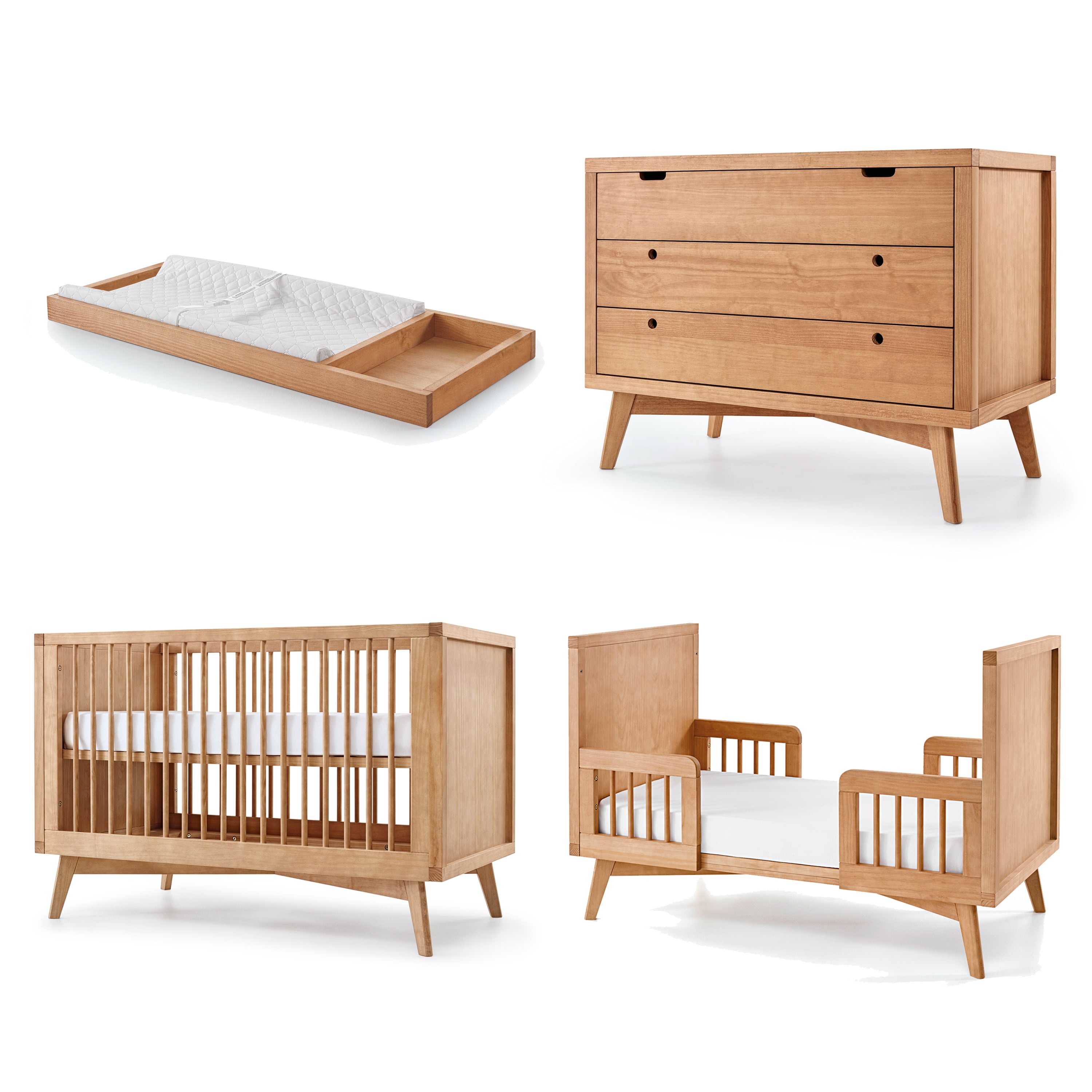How to Make Your Baby Nursery More Eco-Friendly

As you prepare for the arrival of your new baby, few things are as important as getting their nursery up and running. Your baby’s nursery is a comforting environment—one that both nourishes their growth and protects them from the dangers of the outside world. This is why it isn’t enough that it’s well-designed and looks nice. In fact, it should also be eco-friendly and non-toxic so as to not irritate your newborn’s sensitive immune system. Here is how to make your baby nursery more eco-friendly and the importance of doing so.
Buy Furniture Made With Natural Materials
In your search for the perfect crib and changing table, you’ve probably noticed that many products on the market use synthetic materials. Easy and inexpensive to create, these materials allow businesses to cut manufacturing costs while increasing revenue from sales. Though plastics and composite wood won’t directly harm your child, they are more processed than other resources and, therefore, contain a higher number of toxins. If you’re looking for a more natural alternative, it’s often best to choose less-treated solid wood baby furniture.
Use Low-VOC Paint Products
If you’ve recently repainted your nursery during the decorating process, the air in this room could also contain toxins. As paint dries, it releases what are known as volatile organic compounds, or VOCs, into the air around it. While not particularly dangerous to the average adult in small amounts, these particles can compromise your child’s developing immune system and make them sick. For this reason, it’s much safer to use paints that are certified as low in VOCs when repainting this area of the home.
Make Greenery a Part of Your Design
Another way to clean up the air—and make your baby nursery more eco-friendly as a result—is to bring pieces of the outdoors into the space. Houseplants add an extra element of nature to any type of interior design, and their presence filters out impurities in the air. Through this process, they also produce cleaner, breathable air for your baby to enjoy. Keep in mind, however, that some plants can also be very good at collecting dust, so you’ll need to maintain their leaves to prevent an increase in the room’s dust concentration.
Avoid Cleaning With Harsh Chemicals
Make sure as well that, though you’re cleaning your nursery often, you aren’t using chemicals that are too harsh. Things like bleach and anti-bacterial spray may be effective, but they also release toxic particles into the air when applied to a surface. Fortunately, you can get the same cleaning power from other household solutions, such as lemon juice, vinegar, and baking soda.




Leave a comment